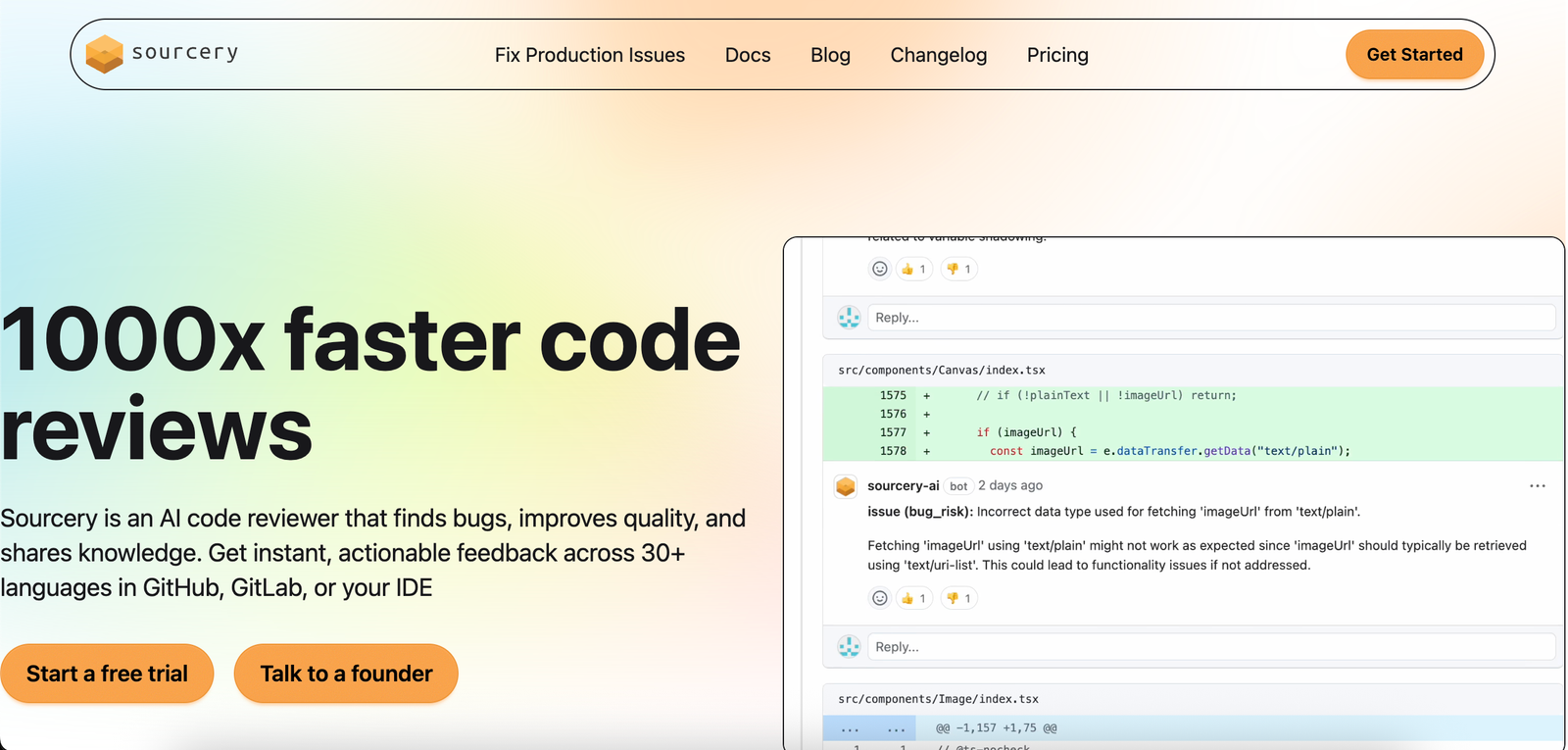
10 Powerful AI Tools That Write and Debug Code Automatically
In the fast-evolving world of software development, AI is no longer just a buzzword—it’s a revolutionary force. One of the most impactful innovations is the rise of AI tools that automatically write and debug code. These tools are helping developers save time, reduce errors, and streamline the development lifecycle.
In this post, we’ll explore some of the best AI coding assistants available today, their key features, and how they’re transforming the future of programming.
🔍 Why Use AI for Code Writing and Debugging?
Traditional software development often involves repetitive tasks, long hours debugging, and the challenge of keeping up with changing frameworks. AI tools are trained on massive codebases and can:
-
Suggest code snippets or write entire functions
-
Detect and fix bugs in real time
-
Offer performance and security optimizations
-
Enhance collaboration via intelligent code review
Let’s dive into the top AI-powered tools that are reshaping software development.
🔧 1. GitHub Copilot
Powered by: OpenAI Codex
Use Case: Autocomplete, documentation generation, unit testing
GitHub Copilot is like an AI pair programmer. As you type, it suggests whole lines or blocks of code in real time. It supports popular languages like Python, JavaScript, TypeScript, Ruby, and Go.
Features:
-
Context-aware code suggestions
-
Integration with VS Code and JetBrains
-
Supports test writing and error handling
🐍 2. Tabnine
Powered by: GPT and other LLMs
Use Case: Code completion, refactoring
Tabnine works seamlessly with IDEs to auto-complete your code based on millions of open-source projects. Unlike Copilot, it also offers on-premise deployments for security-sensitive teams.
Features:
-
AI code suggestions in real-time
-
Supports 20+ languages
-
Team-trained models for consistency
🔍 3. Sourcery
Use Case: Python code improvement and bug detection

Sourcery is ideal for Python developers. It reviews your code and suggests cleaner, more efficient alternatives.
Features:
-
Automatic refactoring
-
Detects anti-patterns and suggests fixes
-
Integrates with GitHub pull requests
⚙️ 4. Amazon CodeWhisperer
Powered by: AWS AI models
Use Case: Code generation with AWS services
If you build on AWS, CodeWhisperer helps generate code snippets for AWS APIs like S3, Lambda, and DynamoDB.
Features:
-
Real-time code recommendations
-
Security scanning for vulnerabilities
-
Language support includes Python, Java, and JavaScript
🛠️ 5. Codeium – Qodo
Use Case: Free AI code completion
Qodo supports more than 70 programming languages and integrates with major IDEs like VS Code, JetBrains, and Jupyter.
Features:
-
Open-source and privacy-first
-
Offline mode for secure environments
-
Multilingual support for teams
🧠 6. AI2sql
Use Case: Translate plain English into SQL queries
AI2sql is a niche but useful tool that helps non-developers and analysts generate SQL queries using natural language prompts.
Features:
-
Converts text to complex SQL
-
Supports multiple SQL dialects
-
Ideal for business analysts
🔄 7. DeepCode by Snyk
Use Case: Static code analysis and bug detection
DeepCode uses AI to scan your codebase and detect bugs, security issues, and logic errors with actionable feedback.
Features:
-
Real-time pull request analysis
-
Secure code suggestions
-
Large rule base trained on open-source code
🔍 8. Codiga
Use Case: Automated code review and refactoring

Codiga reviews your code as you type or during PRs. It suggests improvements based on clean code principles and team-specific rules.
Features:
-
Live coding assistant
-
Custom rule engine
-
Works with Python, JavaScript, TypeScript, and more
💡 9. MutableAI
Use Case: Intelligent code transformation and bug fixing
MutableAI goes beyond code suggestions—it rewrites code for you, refactors it, and can generate documentation automatically.
Features:
-
Converts code to other styles or patterns
-
Optimizes legacy code
-
Integrates with VS Code
🧪 10. Kite (Discontinued)
While Kite was a pioneering tool in AI-powered autocompletion, it was officially discontinued in 2022. Its legacy influenced many modern tools like Copilot and Tabnine.
🚀 The Future of AI in Development
AI tools are no longer optional—they’re essential for competitive, efficient software development. Whether you’re an enterprise dev team or a solo coder, integrating one or more of these tools can significantly improve your productivity and code quality.
✅ Key Takeaways:
-
Choose an AI tool that fits your tech stack and workflow
-
Ensure data privacy when using cloud-based tools
-
Combine multiple tools for maximum efficiency (e.g., Copilot + DeepCode)
Want to stay ahead in the dev world?
Start exploring AI tools today and turn your IDE into a supercharged coding companion.










Leave a Reply